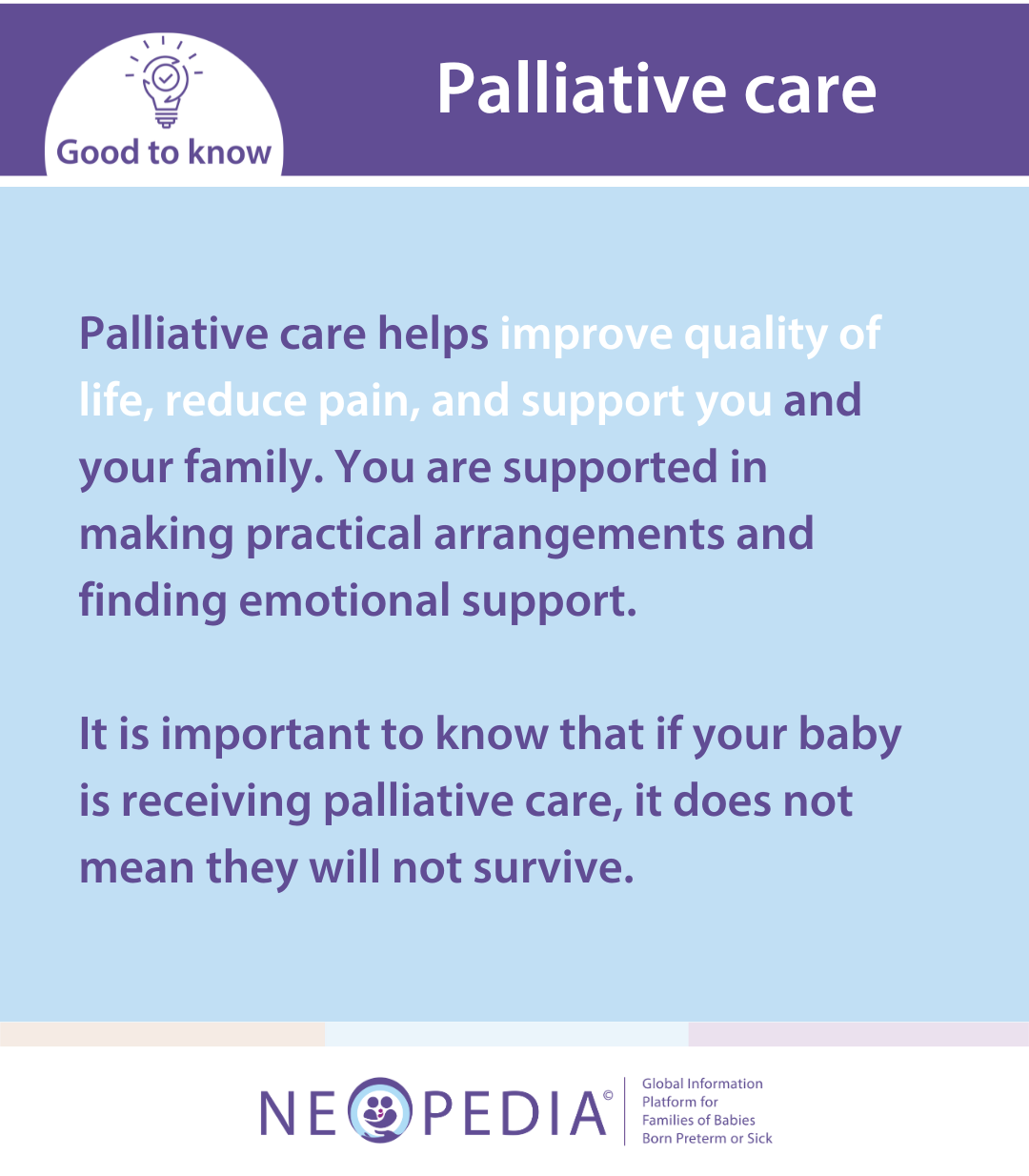
No matter what you decide about your baby’s or babies’ care, doctors and nurses will focus on making them comfortable and minimizing their pain. This is called palliative care, and it focuses on quality of life by helping patients and caregivers manage symptoms and side effects of treatment.
Perinatal palliative care (PPC) is a special kind of care for families with newborn babies. It helps families spend time together, build bonds, and make memories in a calm, home-like setting with less medical treatment. The focus is on family, letting parents hold their baby or babies and make positive memories. The time parents have with them can be very short and precious, so it is important to create opportunities to share special moments together.
It is important to know what local help and resources are available to you. This can be different depending on where you live, so it is good to find out what palliative care teams or local hospices can provide.
An additional care option: children’s hospice
In some countries, a children’s hospice can offer a more home-like environment for you and your family compared to a hospital. However, very preterm babies cannot leave the NICU, and not all hospices take care of babies with special healthcare needs. Talk to your care providers to see what options are available near you.
Hospice staff focus on managing symptoms instead of curing illnesses and helping improve quality of life. They involve family members in care decisions and have skilled staff for babies with serious conditions.
Children’s hospices offer privacy and support, allowing families to stay together. They create an environment where families can sleep in the same room, take the baby outside, and spend time together. Hospices balance what parents want with specialized care. They also help with household tasks, memory-making, symptom control, and support at home. Hospices often assist with funeral planning and provide support for siblings and grandparents.
Your NICU care team should provide you with emotional, spiritual, and practical support. Transferring a baby with critical care needs to a hospice location or home, can be challenging, so careful planning is important for a smooth transition.

